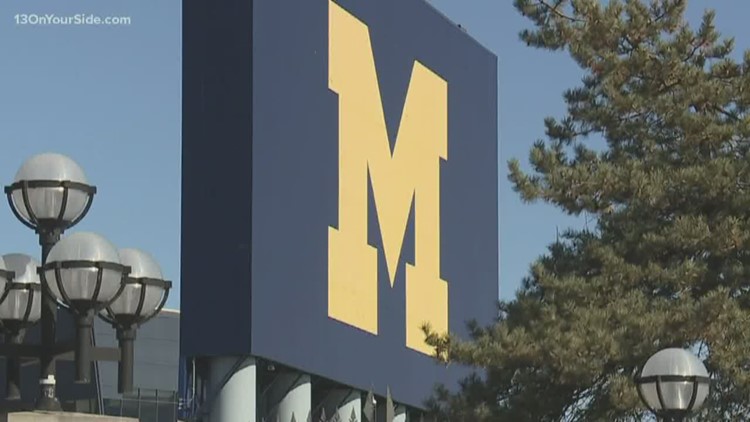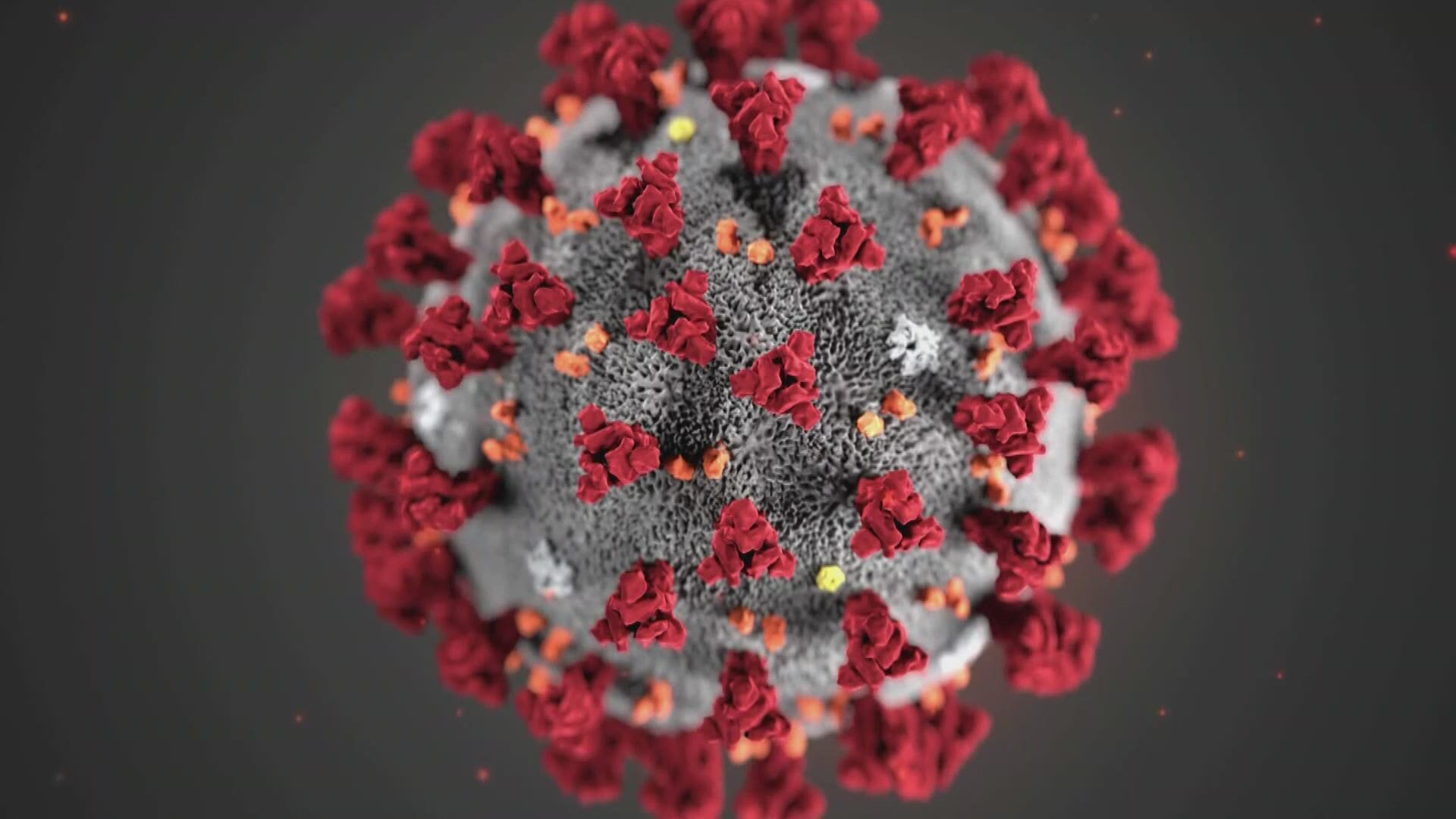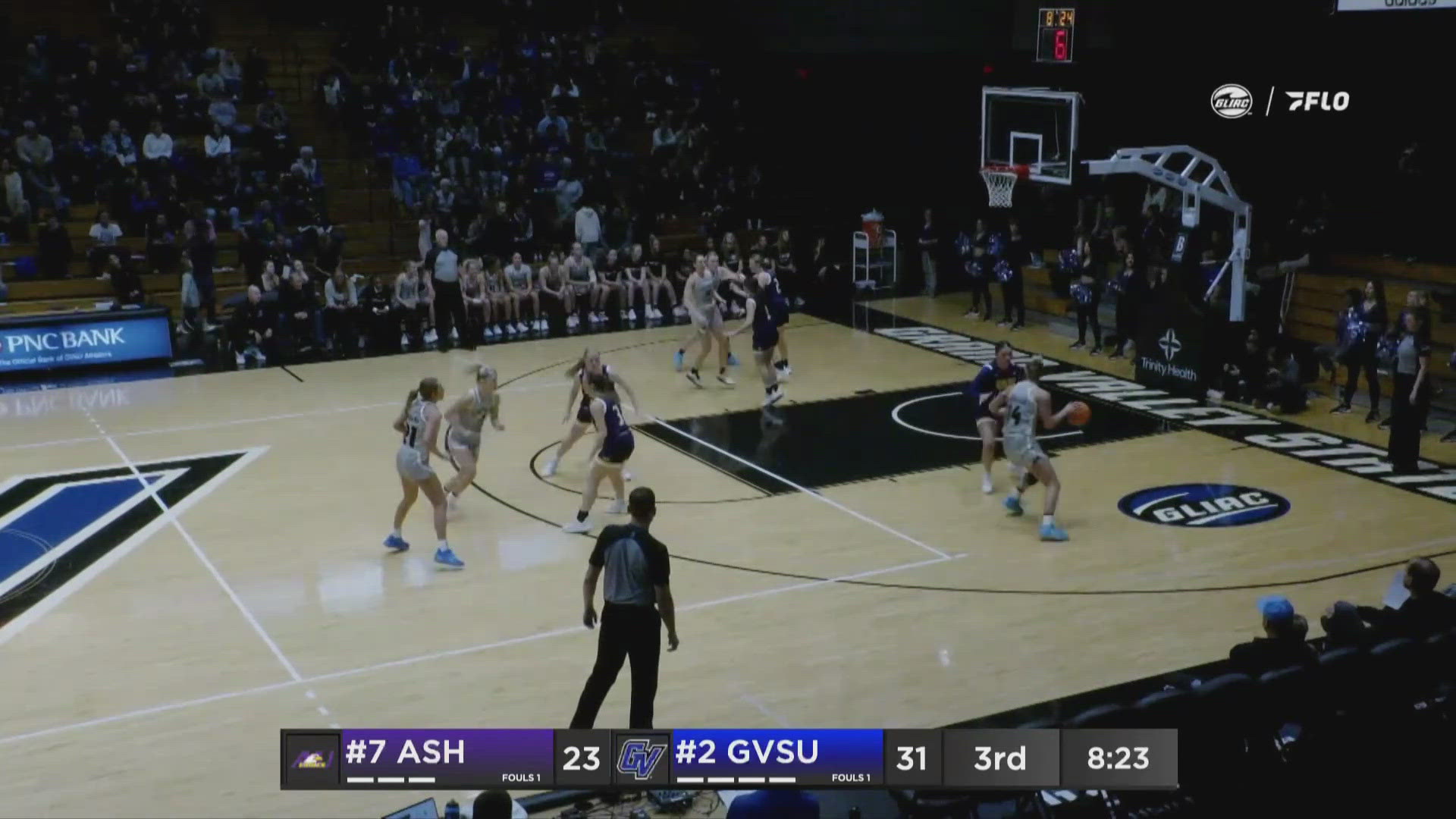ANN ARBOR, Mich. — Five off-campus residences and one on-campus dormitory at the University of Michigan (U-M) are experiencing COVID-19 outbreaks, according to the school.
In recent weeks, university testing has revealed clusters of the COVID-19 B.1.1.7. variant in the U-M community. The highly-contagious variant was first discovered in Michigan on Jan. 16 in Washtenaw County, where U-M is located.
Since then, the variant has spread within the university community and especially in its athletic department. On Jan. 23, the school announced its athletics would be suspended for two weeks due to positive cases of the variant.
"Canceling competitions is never something we want to do, but with so many unknowns about this variant of COVID-19, we must do everything we can to minimize the spread among student-athletes, coaches, staff, and to the student-athletes at other schools," said Warde Manuel, the Donald R. Shepherd director of athletics.
On Jan. 27, U-M and the Washtenaw County Health Department issued a stay in place recommendation for all students living on or near campus. It urges all U–M Ann Arbor undergraduate, graduate and professional students enrolled in Winter 2021 to remain in their homes through Feb. 7.
The recommendation was announced just one day after the university announced outbreaks in four off-campus residences and one on-campus dormitory. On Jan. 29, the university reported that another off-campus residence was dealing with an outbreak.
“U-M officials report a total of five off-campus group living residences are experiencing positive cases among residents and are currently under house-wide quarantine,” the university said. “Pop-up testing is being arranged for those in quarantine to test on day 5 of their 14-day quarantine period.”
While the positivity rate has dropped in Washtenaw County, the university said it has increased within the U-M community. According to a Jan. 26 update, “COVID-19 cases associated with U-M have increased and now represent 21% of the total cases in the county.”
B.1.1.7 spreads more easily between people, but the Michigan Department of Health and Human Services (MDHHS) says there is no indication that it affects the clinical outcomes or disease severity compared to the SARS-CoV-2 virus, which has been circulating across the country and the world for months.
The health department is now working with U-M on strategies to prevent the spread of the virus. The MDHHS says that based on available evidence, current tests and vaccines for COVID-19 also work against B.1.1.7.
RELATED VIDEO:
►Make it easy to keep up to date with more stories like this. Download the 13 ON YOUR SIDE app now.
Have a news tip? Email news@13onyourside.com, visit our Facebook page or Twitter. Subscribe to our YouTube channel.




